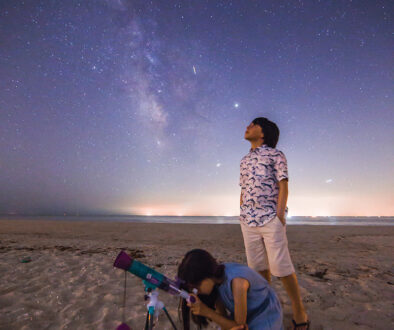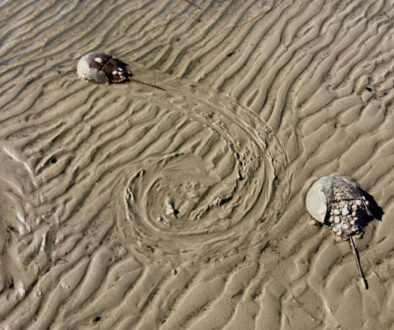The Sky is Falling
Forecast is sunny with a chance of showers at night, but you won’t be needing an umbrella for these showers. Gather your wishes and your coziest blanket and prepare for a month of celestial awesomeness.

August puts on a show in the night sky unlike any other month. One of the largest meteor showers peaks in the middle of the month but can be witnessed throughout its entirety. And our area? Well, we have the best front row seats you could ask for. Our beaches and dark nature preserves are perfect for viewing an event like this.
The Perseids meteor shower is visible all month long but has a peak date for the night of August 12th—the peak meaning the maximum number of meteors per hour. The Perseids peak can surge to over 120 meteors per hour, a sight surely not to be missed.
My recommendation for viewing this shower is from an hour after sunset until you go to bed. The peak happens in the early morning of August 13th, but I always say that it only takes one meteor to make your whole night. Locations are plentiful to view the spectacle. My recommendations are The Nature Conservancy off Sunset Boulevard and the Garrett Family Preserve in West Cape May. Sunset Beach is another great location if you just take a short walk to the right of the gift shop so you can escape the parking lot lights. The beaches along Beach Avenue are good, but the darker locations listed above are better. The darker the sky, the easier it is to see the meteors.
Walking the trails of the Nature Conservancy is one of my favorite meteor shower experiences. That location not only allows you to connect with nature, but if you follow the trails to the end, you can also stargaze directly from the beach. It’s such an amazing experience there and I highly recommend it. Those skies are some of the darkest in our area.
Meteor showers originate from many different regions, but August’s meteor shower origins are from debris left over from a passing comet called 109P/Swift-Tuttle. Each year Earth orbits through this leftover debris, causing us to get rained on by meteors. Debris in space is a lot different than on earth. In space when debris is left it stays there—no elements to help it dissipate. That said, this meteor shower is a recurring event every August.

Where do meteor showers get their names from? Each major meteor shower will have its own name. The name for each shower indicates which constellation the meteors seem to come from, and it is also the best place to look for meteors during the shower. In August, we call it the Perseids meteor shower because Perseus is the constellation that the meteors appear to come from in the night sky. Now the constellation Perseus is in our north where most of the light pollution in our area comes from. I recommend looking to the darkest portion of your sky instead of looking directly at the meteor shower radiant. You will find a lot more meteors looking into a darker sky than a light-polluted portion.
Why are meteors different colors? While looking for them this month try to spot what color they are. Different chemicals in meteors produce different colors as they burn up while entering the earth’s atmosphere. Red? Nitrogen/Oxygen. Yellow? Iron. Purple? Calcium. Orange? Sodium. Blue? Magnesium.
The current moon phase can affect how many meteors you see. The brighter the moon, the less faint meteors you see. So, if you are meteor hunting this month, I suggest you start searching around the middle of the month when the moon is entering its new phase.
One question I often get is where do all these meteors go once they enter our atmosphere? Most of them burn up entirely on entry but the rest fall to the surface of earth. I have a theory that some of these meteors can even be found on the beaches right here in Cape May. I am experimenting with trying to find them by singling out the meteorites with iron in them. I will search the beaches where the ocean and beach meet to scan for these microscopic extraterrestrial visitors by using an enormous magnet to scoop them up. Time will tell if my theory is right.
I wish you all good luck and clear skies! Keep Looking up.



